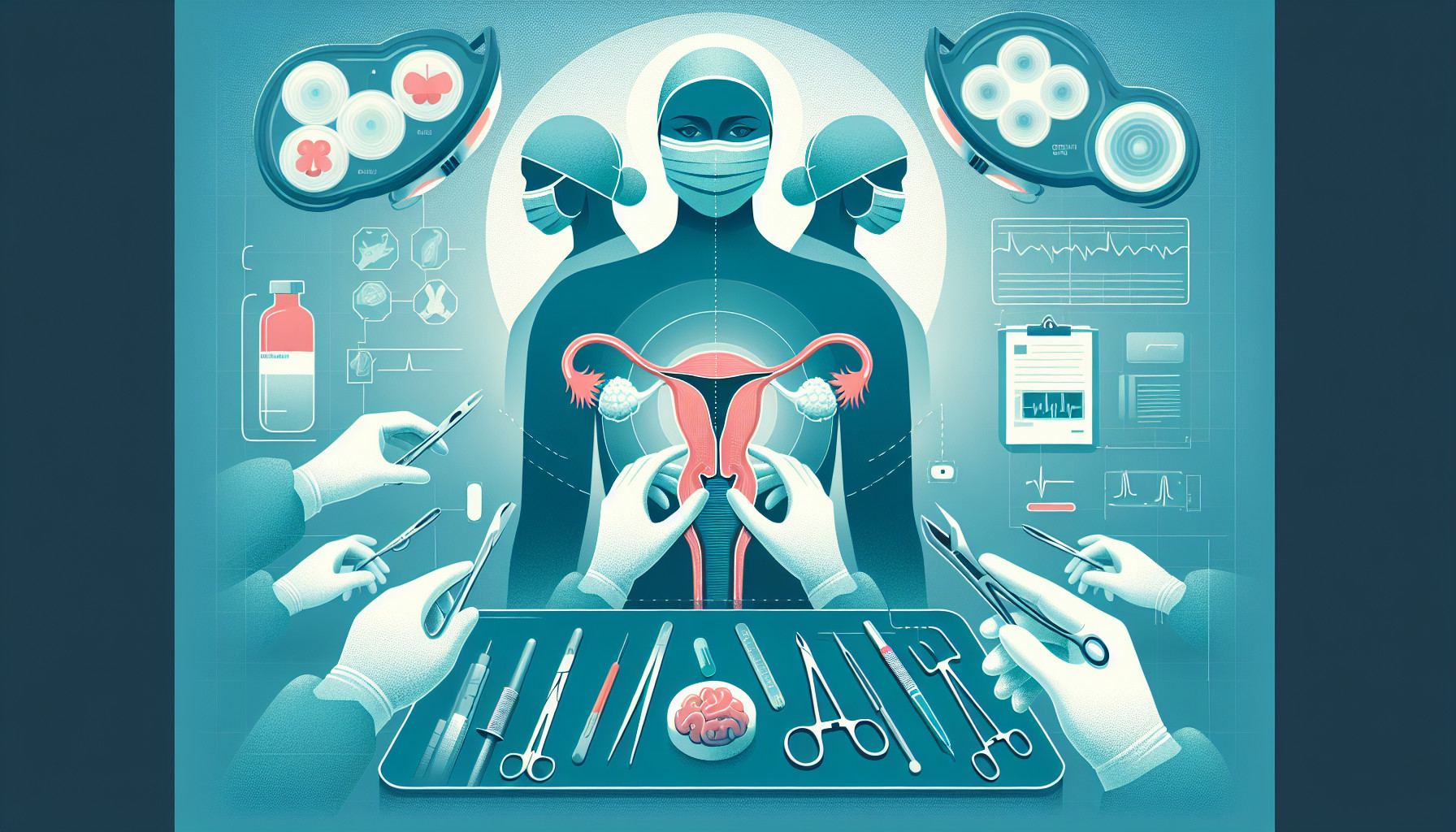Our Summary
This study looked at whether two different types of surgery for cervical cancer - laparoscopic radical hysterectomy (LRH, a less invasive method) and abdominal radical hysterectomy (ARH, a more traditional method) - have different effects on patient’s bowel movements in the long term. They looked at 207 patients who had these surgeries at Peking University First Hospital over a decade and used a specific questionnaire to understand their bowel issues.
They found no overall difference in bowel symptoms between the two groups. However, they did find that people who had the more traditional ARH surgery were more likely to have problems with straining during bowel movements and incomplete defecation than those who had the less invasive LRH surgery. They also found that having ARH surgery and the time passed since the operation were factors that could make straining more likely.
So, the study suggests that women with cervical cancer who have the more traditional ARH might be more likely to have constipation-related symptoms than those who have the less invasive LRH surgery. However, the researchers caution that these findings need to be interpreted carefully due to the design of the study.
FAQs
- What types of surgeries for cervical cancer were studied in this research?
- What was the primary difference found between the laparoscopic radical hysterectomy (LRH) and the abdominal radical hysterectomy (ARH) in terms of bowel movements?
- What were the researchers’ cautions or reservations about the findings of the study?
Doctor’s Tip
One tip a doctor might give to a patient undergoing a radical hysterectomy is to be mindful of their bowel movements and to communicate any changes or difficulties they may be experiencing after surgery. It is important to maintain a healthy diet high in fiber and fluids to help prevent constipation and alleviate any potential straining during bowel movements. Additionally, incorporating regular physical activity into their routine can also help promote healthy bowel function. If any persistent or severe bowel issues arise, it is important to discuss them with their healthcare provider for further evaluation and management.
Suitable For
Patients who are typically recommended radical hysterectomy are those with early-stage cervical cancer or other gynecological cancers that have not spread beyond the uterus. This surgery is often recommended as a primary treatment option for these patients, especially if they are young and have a desire to preserve fertility. Additionally, patients with certain benign conditions such as severe endometriosis or large fibroids may also be recommended for radical hysterectomy. It is important for patients to discuss their individual medical history and treatment options with their healthcare provider to determine if radical hysterectomy is the best course of action for them.
Timeline
- Before radical hysterectomy:
- Patient is diagnosed with cervical cancer and undergoes various tests and consultations to determine the best treatment plan.
- Patient discusses different treatment options with their healthcare provider and decides to undergo radical hysterectomy.
- Patient undergoes pre-operative preparations, which may include blood tests, imaging scans, and other medical evaluations.
- Patient is informed about the potential risks and complications of the surgery, as well as the expected recovery process.
- After radical hysterectomy:
- Patient undergoes the surgery, during which the uterus, cervix, and surrounding tissues are removed.
- Patient stays in the hospital for a few days to recover and is closely monitored for any complications.
- Patient may experience pain, discomfort, and fatigue in the days and weeks following the surgery.
- Patient gradually resumes normal activities and follows up with their healthcare provider for post-operative care.
- Patient may experience changes in bowel movements, such as constipation or difficulty with bowel movements, as a result of the surgery.
- Patient may undergo additional treatments, such as radiation therapy or chemotherapy, depending on their specific case.
- Patient continues to have regular follow-up appointments to monitor their recovery and overall health.
What to Ask Your Doctor
- What are the potential long-term effects of a radical hysterectomy on bowel movements?
- Are there any specific factors that could increase the likelihood of experiencing bowel issues after surgery?
- How common are bowel symptoms such as straining during bowel movements and incomplete defecation in patients who have undergone a radical hysterectomy?
- Are there any strategies or treatments that can help manage or alleviate bowel symptoms after a radical hysterectomy?
- How does the type of surgery (such as laparoscopic vs. abdominal) impact bowel symptoms in the long term?
- Are there any lifestyle changes or dietary recommendations that can help improve bowel function post-surgery?
- How often should I follow up with you or a specialist to monitor my bowel health after a radical hysterectomy?
- Are there any warning signs or symptoms that I should watch out for that may indicate a more serious bowel issue post-surgery?
- Can you refer me to a specialist or support group that can provide additional information and support regarding bowel issues after a radical hysterectomy?
- Are there any specific exercises or physical therapy techniques that can help improve bowel function after surgery?
Reference
Authors: He R, Xue Y, Zhuang X, Wang H, Lu Y. Journal: Int Urogynecol J. 2023 Feb;34(2):439-444. doi: 10.1007/s00192-022-05351-x. Epub 2022 Sep 12. PMID: 36094624
